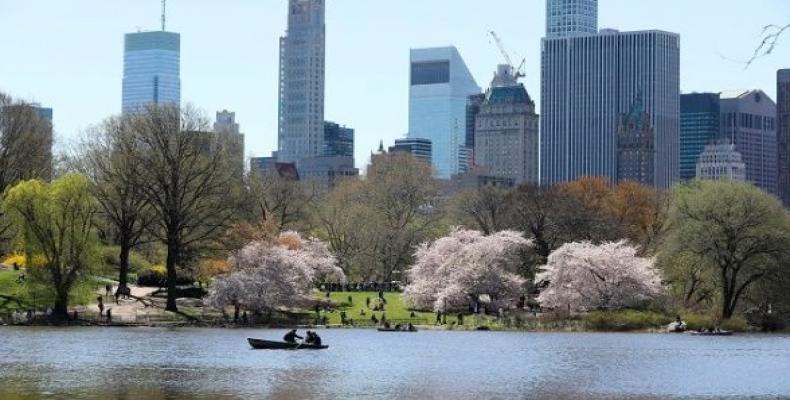Washington, August 30 (RHC)-- Tourism industry insiders believe U.S.-China trade war and hawkish rhetoric from the U.S. government, as well as unfriendly visa policies are to blame. For tourists going to Washington, the historic White House is a centerpiece attraction. But the rhetoric coming out of the building is turning Chinese visitors away.
Statistics confirmed that fear this week: the number of Chinese tourists to the U.S. capital city has seen a precipitous fall. According to a report by Destination DC, a local tourism promotion organization, about 226,000 Chinese tourists descended upon the capital in 2018, registering a 25% drop from the previous year.
The drop marked a second consecutive year that tourists from Washington's top overseas market is decreasing, having dropped about 3 percent in 2017. Benoit Barraud, general manager of sightseeing bus company Big Bus Tours, said the drop in customers is almost palpable. There are 20-25 percent less overseas customers hopping on his buses in downtown Washington than before, Barraud said, much of it is due to the drop of Chinese tourists. "I absolutely do not want this trend to continue," Barraud said.
The drop in number of the Chinese tourists remains a concern for the tourism industry given their deep pockets and inclination to spend more than tourists from other countries. The latest number from the U.S. Travel Association showed that Chinese tourists on average spend 6,700 U.S. dollars per visit, compared with an average of about 4,000 dollars among all overseas visitors.
"The Chinese are my best clients, I like them," a Washington events planner who declined to be named told Xinhua. Washington's woes are not unique in the United States. Chinese visitors to the United States dropped 5.7 percent overall last year, according to U.S. Travel Association numbers.
Even New York, one of the top destinations for Chinese tourists in the country, is also feeling the chill. According to NYCgo, New York's tourism promotion agency, the rate of Chinese inbound travel "continues to cool from previous gains" but is still forecasted to grow this year.
Carl Smith, director of sales and marketing for Prince George's County near Washington, said he has also heard mounting concerns from local businesses that protracted tension between China and the United States might hurt tourism. "Normally people wouldn't think twice about coming here, now they aren't so sure," he said.
Many believe that the U.S.-China trade war and hawkish rhetoric from the U.S. government, as well as unfriendly visa policies are to blame. "Rhetoric from the White House is dampening foreign tourists' enthusiasm to visit Washington," Destination DC's CEO Elliot Ferguson said.
In a letter to member businesses, NYCgo also attributed the slowing traffic from China to "rising economic tensions and trade talks." Wilka Nascimento, sales director at a Hyatt Place hotel in central Washington, said she noted an uptick in visa denials for foreign tourists.
"In one case half of a tour group was denied visa," she said, adding that her hotel now asks tour groups to secure visas for its members before booking a room. In addition to short-term losses, the U.S. tourism industry is also anxious it may not be able to regain the market share it loses to competitors.
While statistics show a declining number of Chinese tourists to the United States, the opposite is true for Russia, Europe, Australia and Canada.
"If market share loss continues in future years, the United States will be losing out on one of the largest and fastest-growing source markets of global travel," the U.S. Travel Association warned.
To win back the hearts of Chinese tourists, Destination DC has been on a promotional campaign, utilizing Chinese social media platforms such as WeChat and Weibo to expand exposure. It also launched a Welcome China program, aimed at helping local businesses better accommodate the specific needs of Chinese tourists.


